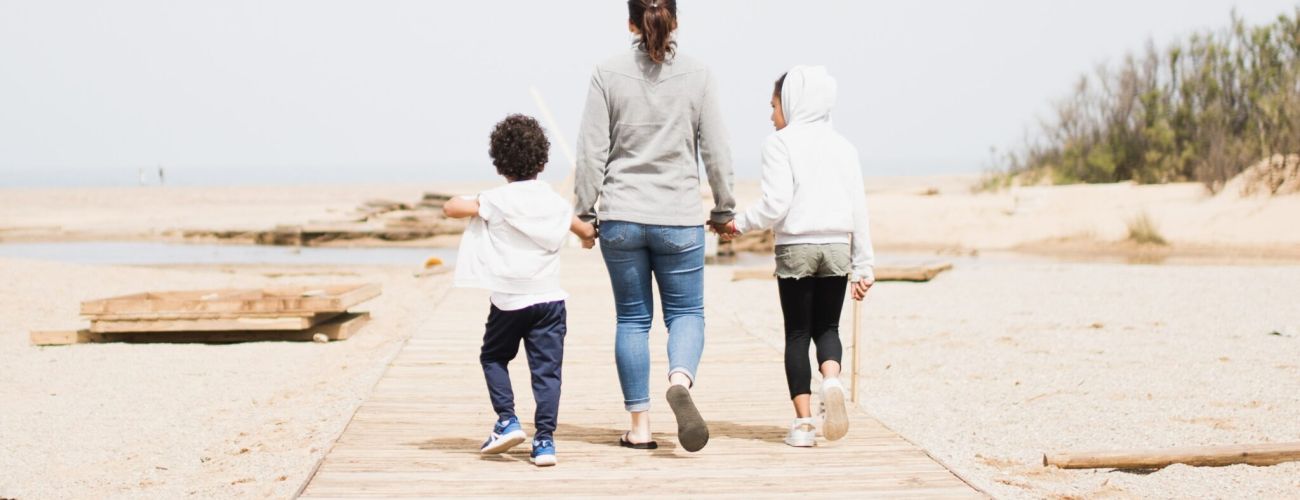
How to balance family life and a PhD
What are the key elements for a successful balance between family life and the PhD study?
– lessons learned from Urd Bak’s story
Dr. Bak’s 3 tips to PhD students are:
Structure and plan your scientific work, and keep work and family life apart.
Accept your imperfections and get the help you need to tackle them – remember “completed” is better than “perfect”,
Keep your supervisor updated so problems can be resolved before they become serious disturbances.
Meet Urd Bak, married, mother of two daughters, biologist and PhD on seaweeds.
In this blog post, Urd Bak shares her PhD story and the key elements that helped her to a successful balance between family life and work.
How to balance family life and a PhD
It all began when Urd was doing her BA. A senior researcher introduced her to the potential of seaweeds as a source of environmentally sustainable source of nutrition. Urd was fascinated and loved the hands-on aspects of studying these oceanic vegetables.
Moving on to her Master’s degree, seaweeds still played a major role in Urd’s academic work. Having earned her MSc, she was employed part time at the Food Institute, the Danish Technical University and part time at Ocean Rainforsts, a private company that specialises in making seaweed a viable business proposition. The idea of an industrial PhD was taking shape, in collaboration with the university.
Urd started her PhD abroad and brought the family with her
Urd decided to spend the first year as PhD student at Ocean Rainforsts on the Faroe Islands with her family: two young daughters and her husband. On the one hand, Urd was in paradise, being able to dig into her weeds. On the other hand, life was challenging for her and her family trying to make their everyday lives work in a foreign environment. Among other things, through Urd’s structuring of her work, there was room for both science and the family.
After one year, the family moved back to Copenhagen. Life changed from wellies to a computer keyboard. Papers were to be written and presentations prepared for scientific conferences, and still she commuted between home and the wind battered Atlantic islands for more field work.
Accept your imperfections – you can communicate your science internationally without being strong at English
Urd knew that English – her working language – was not her key competence. At school, maths and natural sciences subjects were favourites, whereas foreign languages were not really her cup of tea. So, a language barrier in her scientific work was by no means a surprise.
How did Urd manage to write the scientific papers required? And how about speaking at international conferences? Well, first, Urd attended courses on academic writing and presentation techniques. She learnt to use some very tangible tools to help her build a scientific paper systematically and in correct English.
Secondly, she used speaking techniques that helped her deal with nerves and deliver well-structured, interesting talks. She discovered that using relevant writing and presentation techniques continuously made writing and public speaking less daunting. Practice makes perfect, or nearly so!
Finally, Urd benefitted greatly from her natural self-discipline and ability to plan her academic activities.
“Being systematic and disciplined made me get things done and at the same time still have a family life.”
From PhD student to full-blown researcher
One day not long ago, all the papers for her PhD had been finalised. And her thesis, too. It was time for the moment of truth: the PhD defence. An audience comprising friends and family, colleagues and supervisors and two outsiders ready to ask critical questions.
It all went well; very well, in fact. Urd felt intensely happy. And afterwards, a garden party at home: one her supervisors gave a moving speech as did a cousin who had helped her. For Urd, her PhD process was a positive experience – fancy now being a full-blown researcher, on a par with those a looked upon with awe not long ago. That day was a milestone in Urd’s life, not least considering that five years earlier, Urd had no clue about pursuing an academic career.
Now that Urd is no longer a PhD student, she discovered that her academic life is different, almost intimidating; now, Urd is a scientific resource rather than a mere underling as some senior researchers tend to see PhD students.
Urd now works at Ocean Rainforests, who originally hired her as a PhD student. She is happy there but has no specific plans for the future. What Urd does know is that she wants to explore further the huge potential in seaweeds as a way of reducing CO2 emissions, ensuring food availability on the planet and protecting the oceans.
Urd’s three tips:
Our conversation ends with Urd’s three tips for PhD students:
Structure and plan your work!
Never allow your daily work to be distracted by activities in your life that are also important – and the other way around. Keeping things on track enabled Urd to engage in hardcore science and, at the same time, to have a happy family life.
Accept your imperfections!
Things can always be improved, but at some point in time you must deliver. No one is infallible, and you must learn to enjoy the relief of submitting something you have worked hard on. Getting help to deal with challenges can make your work more efficient and help ensure a good balance between work and private life.
Keep your supervisor updated!
Urd’s supervisors were invaluable resources throughout her PhD. It was vital that Urd continuously kept them informed about how things were going so problems could be resolved before they became serious disturbances. Use your supervisors – they are your partners!
Urd (or Dr Bak) attended GlobalDenmark’s two courses on scientific communication: “Academic Writing” and “Advanced Presentation Techniques”.
Related Links
https://phdinahundredsteps.com/tag/balancing-phd-and-workfamily-life/
https://www.phdstudies.com/article/six-tips-for-pursuing-your-phd-with-a-family/